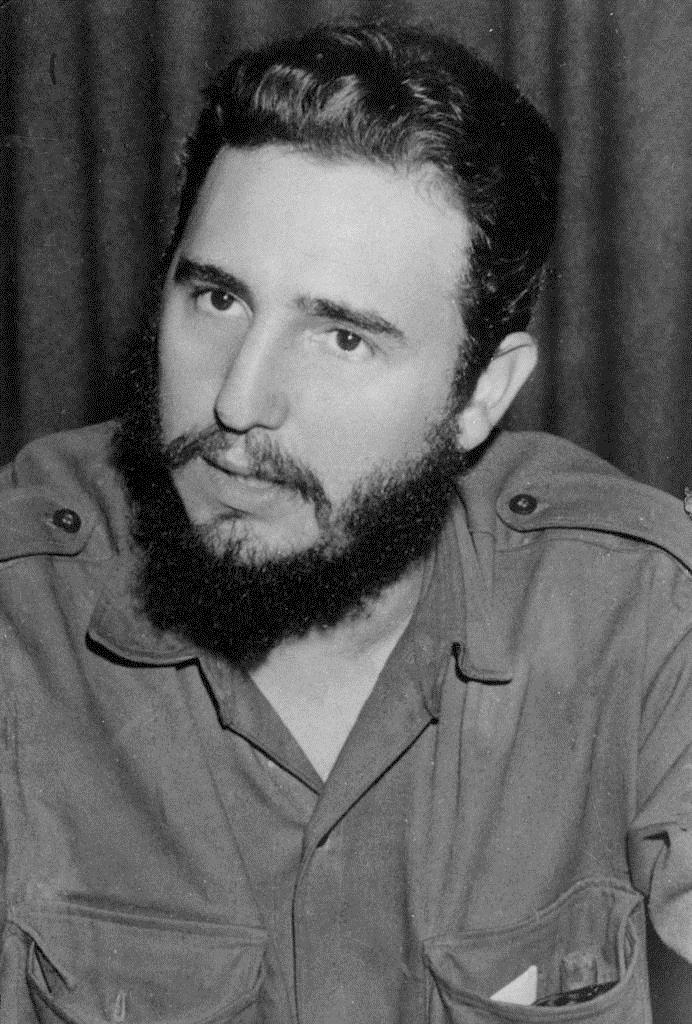I have described my forthcoming book on The Global History of the Cold War, and talked about some of the things that struck me as novel or surprising. I am continuing that theme today, looking at how the information and research that we now have available has transformed what we knew, or thought we knew, about that era. Specifically, let me look at the theme of what we might call cuddly dictators – Communist rulers who were actually far more evil and destructive than we vaguely appreciated at the time. I’ll focus on two in particular. In the process, I will describe one critical historical episode, a moment when the course of history simply refused to turn as, by all rights, it should have done
Through much of the Cold War, Western media and politicians cultivated favorable images of some countries and leaders that were definitively on our side, and even presented them as heroic. One example of that was Yugoslavia’s Marshal Tito, who was seen as a heroic resister against Soviet domination, and (surely) a herald of democratization and the market economy in Eastern Europe. On closer examination, Tito emerges as one of the bloodiest and most aggressive of the Eastern Bloc dictators, who repeatedly came close to detonating a European war in the late 1940s. Domestically, he perpetrated some of the worst massacres of anti-Communists and of anyone who challenged his rule. He ran a secret police state as bad as any in the Eastern Bloc. Quite surprisingly to me, and very contrary to stereotype, Yugoslavia through the 1970s remained one of the most active supporters of Third World liberation struggles and anti-Western guerrilla movements. It was almost as if, um, he was some kind of Communist or something.
What is most striking here, I suppose, is just how few Western media ever bucked the trend, and actually pointed out these flaws in the “our cuddly dictator friend” mythology. We see things not as they are, but as we are – or as we would dearly like to see them.
And that brings us neatly to Fidel Castro. Even Americans or Westerners with no illusions about the Soviets have often fallen for the romantic mythology of the Cuban Revolution, and express at least some admiration for Castro. He can’t be a dictator, OK, he has a cool beard and looks like a bandit! A long and depressing list of Hollywood celebrities sang his praises.
Looking back at the Cold War, Castro has to emerge as one of the worst and most sinister characters in the whole story. At the height of the missile crisis in 1962, he penned a hideous document basically urging the Soviets not to be afraid of launching a nuclear attack on the US, and happily offering the Cuban people as a sacrifice in the cause of Communist victory. The willingness of the Cuban people to be sacrificed thus is not recorded.
That act in itself should have ended any Western respect for Castro, but there were plenty of other crimes. Of course the regime was murderously repressive towards its enemies and critics, but Castro also destroyed Communist allies who stood in his way, or who became too popular. A prime example of that came in mid-1989, and it involves a key moment in the closing phases of the Cold War, but one that surprisingly never gets the attention it merits. It remains one of the great historical might have beens.
This was a time when old-style Communist dictators were tumbling around the world. As the Cuban socialist economy staggered through the 1980s, General Arnaldo Ochoa was often seen as a likely successor to Castro. His experiences in the country’s African wars had given him excellent connections with Soviet commanders and officials, making him a natural successor to implement Gorbachev-style reforms. Presumably, Gorbachev’s government was subtly preparing the way for his takeover, and the Soviets remained very powerful indeed in the Cuban state and its intelligence agencies.
But any hopes of radical change or democratization ended in June and July 1989, when Ochoa was tried on outrageous charges of drug dealing and treason, and executed. That was ridiculous in multiple ways, not least because it was an open secret that so many other people in the regime were deeply implicated in drug dealing, particularly the Castro family itself. So why was Ochoa targeted, except as a thin justification for a political takedown? An extensive purge of the security agencies followed.
The Ochoa affair received remarkably little attention in the West because it got lost in the exploding crises facing Communist regimes in Eastern Europe (Poland and Hungary) and in China. Ochoa’s initial arrest was announced just a week after China’s Tienanmen crackdown. Insofar as the case was covered at all, Western media generally accepted the regime’s story of Ochoa’s misdeeds. But almost certainly, this was a pre-emptive strike by Castro against any potential reform effort, and it succeeded. His regime survived the crisis, and Cuba averted what should have been a “velvet revolution” on East European lines. In consequence, the country lost another whole generation.
I think of the Ochoa affair as Castro’s Tiananmen. Alternatively, it was when the Cuban Wall failed to fall.
In retrospect, some Cold War figures emerge rather better than we might have thought, and some very badly indeed.














